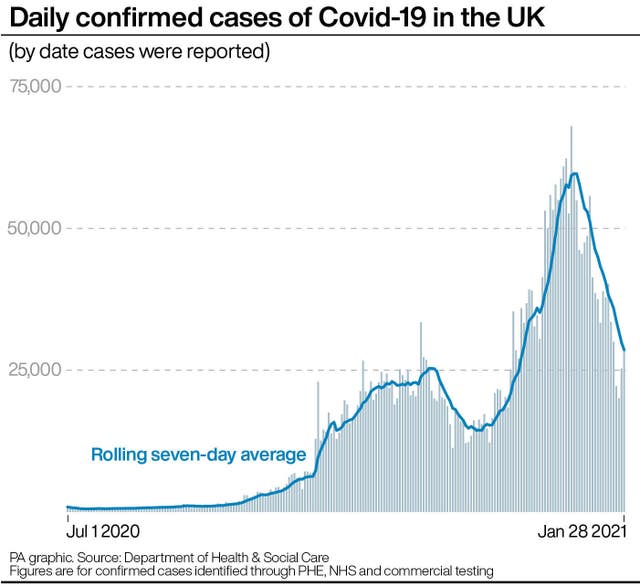Drakeford: Welsh schools may reopen in February due to falling Covid cases
Wales has a rate of 170 cases per 100,000 of its population, while the country’s R number is around 0.7

Wales will hope to “take advantage” of its lower rate of coronavirus transmissions to get pupils back into schools ahead of other UK nations, First Minister Mark Drakeford has said.
The Welsh Labour leader said a phased return to the classroom, starting with primary school children, could begin “straight after half-term” if Covid cases continue to fall.
Wales currently has a rate of 170 cases per 100,000 of its population, down from 270 per 100,000 last Friday, while the country’s R number is estimated to be around 0.7, meaning the virus is on the decline.
Mr Drakeford said on Friday that, following a three-week review, it is still too early to relax lockdown restrictions which have been in place since December 20, despite the promising figures.
But he said he will look to reopen schools in February, with the youngest pupils being prioritised if case numbers continue to fall.
Mr Drakeford told the Welsh Government’s press briefing: “Getting young people back into school and college for face-to-face learning is our priority.
“Unfortunately, we don’t have the headroom to do this yet. As soon as we do, we want schools and colleges to begin to re-open.
“If infections continue to fall, we want children to be able to return to school after half-term from February 22, starting with the youngest children in our primary schools.”
Asked why this is earlier than in England and Northern Ireland, Mr Drakeford told BBC Breakfast earlier on Friday: “Because the context is different. Today we have 175 people in Wales for every 100,000 contracting coronavirus.
“In England a couple of days ago the average was 350, and our 170 figure is falling every day, so you can see the context is very different.
“We want to take advantage of that. Our children and young people have had a torrid time over the last 12 months, they are missing out on education every week.”
Mr Drakeford said the Welsh Government is working with local education authorities, teaching unions and the Children’s Commissioner to return young people to face-to-face learning “as soon as it is safe to do so”.
“Provided the next three weeks see further falls, we think we can do that straight after half-term. That’s what we’ll be working on together,” Mr Drakeford said.
The country’s incidence rate, test positivity rate, and the number of people in hospitals and in critical care will all be taken into account before a decision is made on reopening schools, he said, describing it as “the top priority for us here in Wales”.
Mr Drakeford also told BBC Radio 4’s Today programme that teachers will only be prioritised for a vaccine if the Joint Committee on Vaccination and Immunisation (JCVI) changes its advice.
Mr Drakeford told Friday’s press briefing he understood the “anxieties” that school staff have about students returning to face-to-face teaching, but said everything would be done to make sure their work environments are safe.

The very youngest children are the least likely to suffer from Covid-19 or to spread it to other people, he said, and work needed to be done to “repair the damage” of a year without classroom education.
Mr Drakeford also said he was “very keen to give two clear weeks’ notice” before confirming when children could return to school.
Level 4 restrictions will remain in place for at least another three weeks, time the First Minister said was needed to “allow the NHS to recover” from the surge in cases over Christmas.
Mr Drakeford also announced that from Saturday, two people from different households will be allowed to exercise outdoors together, while people will be allowed to swap support bubbles after 10 days if their circumstances have changed.
Meanwhile, Public Health Wales said there were a further 546 cases of coronavirus in Wales, taking the total number of confirmed cases to 190,940.
It reported another 29 deaths, taking the total in Wales since the start of the pandemic to 4,695.
The agency said a total of 362,253 first doses of the Covid-19 vaccine had now been given, an increase of 26,182 from the previous day, while 717 second doses were also given, an increase of 43.
In total, 66.9% of those over 80 have received their first dose of the vaccine, along with 73.1% of care home residents and 76.8% of care home staff.





